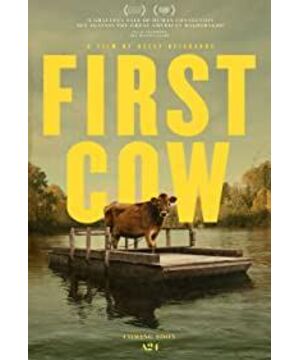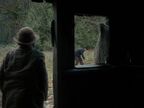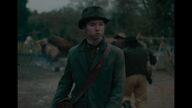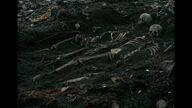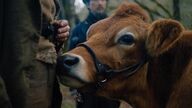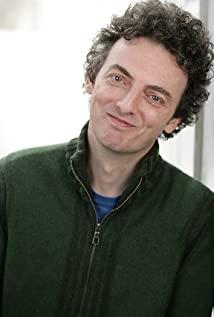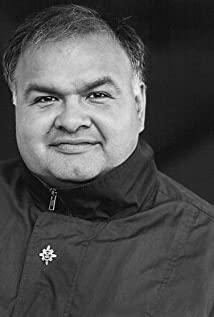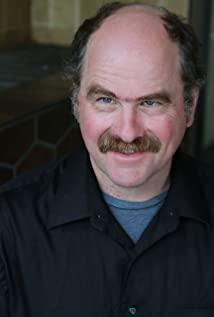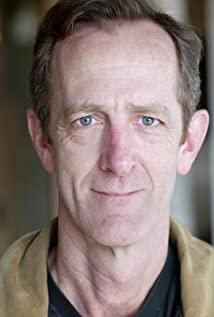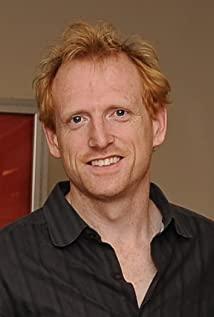As an American western movie, "The First Cow" is more or less like a "heretic" who is not out of the norm. Many symbols of traditional western films, those vast wilderness, bloody cowboys, galloping horses, violent fighting, have been hidden in the film, and even the rich and colorful legendary narrative, black and white contrasting conflict and grand scene composition, in the film. Films are also replaced by sparse everyday narratives and relatively microscopic images. The weakening of the story makes the first-time viewing experience of "The First Cow" a bit boring, and it lacks the excitement brought by traditional western films. But when I watched it again, I felt the meaningfulness of simplicity.
The grand epic narrative may indeed not be the strong suit of female directors. But it may also be the director's female identity that enables her to capture the poetry of ordinary life more acutely and tenderly, and measure the depths of human nature and emotion.
The story of "First Cow" takes place in Oregon in the 1920s, which has a typical American western style. Chef Cookie, businessman Lu Jin from China, and countless gold diggers all came to this wild land in search of opportunities to gain early wealth accumulation. One accidental night, Cookie rescued Lukin from being hunted down. In order to repay his kindness, Lukin invited Cookie to live with him and seek the most primitive capital for his dream together. Soon, the local British chief paid a lot of money to buy a high-quality dairy cow - the first local cow. In this regard, they discovered a business opportunity - they secretly milked milk together at night, made biscuits with it, and sold it at the market the next day. As expected, cookies are in short supply every day.
The golden, creamy biscuits that gave birth to people's "nostalgia" embody the primitive and inflated desires of the two most ordinary strangers about the "American Dream".
"All men are created equal, endowed by their Creator with certain inalienable rights, among them life, liberty, and the pursuit of happiness." This sentence from the Declaration of Independence gave the "American Dream" its original legitimacy . Such a vague promise makes people believe that they are no longer trapped in innate stipulations, that they can break through the boundaries given by their status, that they can achieve happiness and a good life as long as they work hard enough It is possible to generate its own value on this land.
But fairy tales may also have a darker version hidden behind the grand narrative. The Westerns frame the history of Americans who reclaimed the wild west with their heroic dreams, but in reality, they have another brutal and desolate face. Under the splendid shell of the "American Dream", capitalists are still exploiting and robbing workers. For countless dreamers, the "American Dream" is just an illusion, and the siege of identity brought about by class differentiation has not disappeared.
In the film, the British leader finally discovers the secret of Cookie and Lukin stealing milk, and in their rush to escape, the "American Dream" that once seemed within reach is finally shattered. I was once confused as to why the British leader had to hunt down them and let them pay compensation, wouldn't it be fragrant to cooperate with them to open a bakery? Why is the American dream of such a wealthy person not willing to give a corner to those who are embarrassed? It soon became clear to me that it was because he was rich that he was so mean. As an oligarchic existence, he only wants to absolutely possess and infinitely expand his wealth, and what Cookie and Lukin violated is precisely what he regards as the most sacred value - wealth. This endless thirst for wealth is what Max Weber called "the spirit of capitalism". He wrote in "Protestant Ethics and the Spirit of Capitalism": "Profit has become the purpose of life, and no longer a means to meet people's material needs. For people's natural emotions, this is simply what we will talk about. The resulting perversion of the 'natural' state of affairs, meaningless, is now unconditionally and openly the guiding principle of capitalism".
"The First Cow" completes the irony of the "spirit of capitalism" in a few seemingly calm shots. As the representative of the capitalists, the wealth of the leader itself is born from the exploitation of the bottom laborers, but even a poor laborer like Cookie takes even a humble amount of his wealth, which constitutes a sin. Such absurdity and paradox are the underpinnings of capitalist ethics. In the ethics of capitalism, acquiring more wealth is the highest value with absolute legitimacy. Such an inversion of "means" and "ends" not only gave birth to alienation between people, but also gave birth to Alienation between man and nature. The dialogue about beavers in the film just hints at the insatiable demands of people from nature. At the same time, the film is also filled with a love for idyllic songs, thousands of nameless and vibrant plants, rustling soil underfoot, little lizards lying on fallen leaves, fishing boats on clear lakes, Indian villages Dawn and sunset and the curling smoke, everything in this land that humans have not conquered seems to be so lovely, filled with Tao Yuanming's tranquility.
This idyll also flows through the tender feelings between Cookie and Lukin. Cookie is a soft and shy man who will help troubled little creatures in the forest and softly soothe crying babies, and Lukin is a bloody and righteous man who will stab his wounded friends. , will drink a lot and talk about ideals. Among the bustling mercenary people around, they seemed so out of place, so their encounter was infused with beauty because of a certain "virtue is not alone, there must be neighbors". They also have human flaws (stealing milk), but in the final analysis, they have genuine care for everything, and have a simple nostalgia for the truly beautiful values in the world. They found in each other the innocence and beauty that they couldn't let go of themselves, and such "qinse and ming" made them cherish the friendship between each other very much. And their mutual sympathy for each other even surpassed their desire for the "American Dream" - so after their respective escapes, they would return to the dilapidated cottage they once lived in together and had warm memories. And the last scene - Cookie was exhausted, collapsed on the ground and closed her eyes, Lukin didn't take the coins and left alone, but lay quietly beside him, murmuring: "We'll be leaving soon, With me" - such a moving ending.
In the hidden woods under the night, they cuddled their sleeping faces, and such a long shot, which is not at all dramatic, is so poignant, because it evokes the most authentic emotions in the hearts of the viewers - that It is an emotion that has nothing to do with interests, desires, or even love (although today, this pair of "cp" is likely to make people call "too sweet"), but I still believe that this is the purest, An ancient, simple emotion, an attachment born of understanding.
Lukin's cute and somewhat "stupid" choice in the end represents a certain appeal of the film at the philosophical level, that is, the admiration for value rationality. Max Weber believes that "value rationality" refers to the behavior of acting in accordance with certain value beliefs absolutely recklessly, while "instrumental rationality" refers to the behavior that achieves the purpose on the condition that the consequences can be calculated and predicted. Whether reason absolutely honors a certain value or serves as a means to achieve a certain end is a choice. Obviously, the pursuit of wealth maximization and profit belongs to the category of instrumental rationality, while Lukin's choice belongs to the category of value rationality.
The scene where he lay down quietly, why did it move me so much, not because cp is good to eat, but because in this world where instrumental rationality spreads arbitrarily, it seems to be a gentle and sharp resistance.
Going back to the beginning of "First Cow", Cookie and Lukin left the world exactly like this. I hope they will still have their tender old dreams of yesterday's world where there is love, kindness, bakers don't starve to death, and beavers are fertile until the last moment...
View more about First Cow reviews


